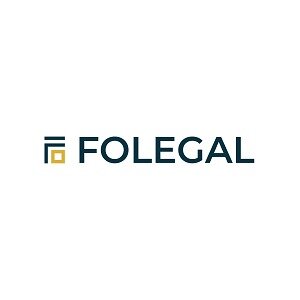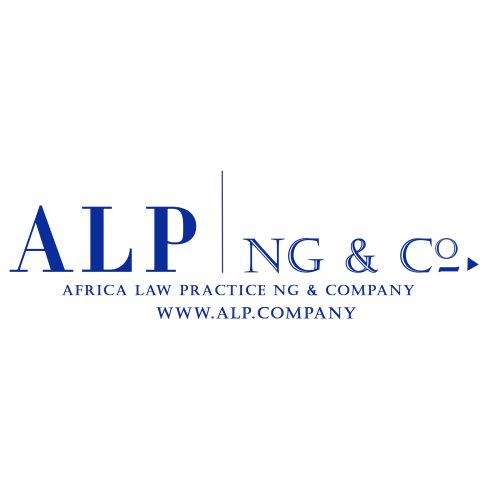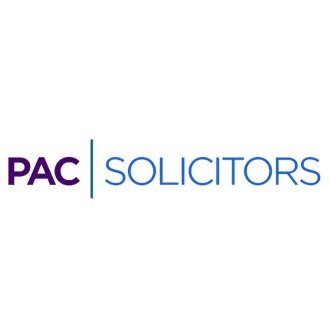About Mining Law in Nigeria
Mining Law in Nigeria regulates the exploration, extraction and processing of solid minerals within the country's borders. The sector is primarily governed by the Nigerian Minerals and Mining Act, 2007, and its regulations. The law ensures orderly exploration and exploitation of mineral resources, balancing economic interests with environmental protection and host community rights. Mining Law lays out requirements for licensing, operation, and monitoring of mining activities while promoting responsible investment and compliance with Nigerian law.
Why You May Need a Lawyer
Mining Law in Nigeria is complex, involving multiple regulations and government agencies. A lawyer specializing in Mining Law can help with various situations, including:
- Obtaining or transferring mining licenses and permits
- Conducting due diligence before acquiring mining assets or investments
- Drafting and negotiating mining agreements
- Complying with government regulations and environmental standards
- Resolving disputes with host communities, government agencies, or business partners
- Handling issues of compensation, land acquisition, and resettlement
- Registering mining rights and addressing title issues at the Mining Cadastre Office
- Representation in litigation or administrative proceedings
- Advising on taxation, royalties, and export controls
- Guiding companies through closure and remediation processes
An experienced lawyer can simplify the process, anticipate legal risks, and protect your interests at every stage of the mining lifecycle.
Local Laws Overview
Mining in Nigeria is primarily regulated by the Nigerian Minerals and Mining Act, 2007, and the Nigerian Minerals and Mining Regulations, 2011. The Mining Cadastre Office is responsible for issuing licenses, including Reconnaissance permits, Exploration licenses, Small Scale Mining Leases, Quarry Leases, and Mining Leases. Key aspects of local laws include:
- Licensing: Only companies incorporated in Nigeria with at least 5 percent equity held by Nigerians are eligible for mining licenses.
- Community Relations: Holders of mining rights must negotiate with and compensate host communities, often via Community Development Agreements.
- Environmental Protection: Environmental Impact Assessments are mandatory before operations can begin, and strict guidelines are in place for remediation.
- Land Use: Mining rights are separate from land ownership, meaning mineral resources remain vested in the Federal Government, even on private land.
- Royalties and Taxes: Operators must pay prescribed royalties and taxes to the government.
- Health and Safety: There are requirements to ensure the safety of workers and surrounding communities.
- Foreign Investment: Foreign investors can participate under certain conditions, but must comply with local laws and often through partnerships with Nigerian companies.
Frequently Asked Questions
What government agency is responsible for mining licenses in Nigeria?
The Mining Cadastre Office under the Ministry of Solid Minerals Development is responsible for issuing and managing mining licenses and permits in Nigeria.
What types of mining licenses are available in Nigeria?
The main types include Reconnaissance Permits, Exploration Licenses, Small Scale Mining Leases, Quarry Leases, and Mining Leases.
Can foreigners hold mining rights in Nigeria?
Yes, but through Nigerian incorporated companies and subject to legal requirements including ownership structure and compliance with the Nigerian Investment Promotion Commission Act.
What steps are involved in obtaining a mining license?
Applicants must incorporate a company in Nigeria, apply to the Mining Cadastre Office, submit required documents, perform environmental assessments, and pay relevant fees.
Is an Environmental Impact Assessment mandatory for mining projects?
Yes, an Environmental Impact Assessment is required before the commencement of any mining or quarrying activity to ensure environmental protection.
What are Community Development Agreements?
Mining operators are required to enter into agreements with host communities, outlining how both parties will cooperate and what social investment the company will provide.
How is land for mining acquired?
Mining rights are separate from land ownership. Operators must compensate landowners and get necessary permits, but the government retains ownership of mineral resources.
What are the common causes of disputes in mining?
Disputes often arise from compensation issues, environmental damage, non-fulfillment of community agreements, or overlapping land or mining rights.
What royalties and taxes do mining companies pay?
Companies must pay royalties varying by mineral type and production volume, as well as taxes such as company income tax and value-added tax.
What is the penalty for illegal mining in Nigeria?
Illegal mining is a criminal offense, attracting fines, confiscation of equipment, and possible imprisonment for individuals or closure of companies involved.
Additional Resources
For more information or assistance, the following resources may be helpful:
- Ministry of Solid Minerals Development - The main government agency for mining policy and oversight.
- Mining Cadastre Office - Issues and manages all mining permits and licenses.
- Nigerian Investment Promotion Commission - Supports foreign investors seeking to participate in mining.
- National Environmental Standards and Regulations Enforcement Agency (NESREA) - Oversees environmental compliance in mining activities.
- Nigerian Bar Association (NBA) - Can help you find qualified lawyers with experience in Mining Law.
Next Steps
If you need legal assistance with Mining Law in Nigeria, here is how you can proceed:
- Gather all relevant documentation related to your mining interests or project, such as permits, contracts, and company registration papers.
- Identify your specific legal needs or challenges, such as licensing, disputes, or compliance matters.
- Consult a lawyer who specializes in Mining Law to review your documents and advise on your rights and obligations.
- Work with your lawyer to ensure all applications, agreements, and operations comply with Nigerian law and best practices.
- Engage with relevant government agencies for official guidance or to process applications and registration.
- Maintain clear communication and documentation to protect your interests and ensure transparency throughout your mining operations.
Taking these steps will help you navigate the complexities of Mining Law in Nigeria and achieve your goals while minimizing legal risks.
Lawzana helps you find the best lawyers and law firms in Nigeria through a curated and pre-screened list of qualified legal professionals. Our platform offers rankings and detailed profiles of attorneys and law firms, allowing you to compare based on practice areas, including Mining Law, experience, and client feedback.
Each profile includes a description of the firm's areas of practice, client reviews, team members and partners, year of establishment, spoken languages, office locations, contact information, social media presence, and any published articles or resources. Most firms on our platform speak English and are experienced in both local and international legal matters.
Get a quote from top-rated law firms in Nigeria — quickly, securely, and without unnecessary hassle.
Disclaimer:
The information provided on this page is for general informational purposes only and does not constitute legal advice. While we strive to ensure the accuracy and relevance of the content, legal information may change over time, and interpretations of the law can vary. You should always consult with a qualified legal professional for advice specific to your situation.
We disclaim all liability for actions taken or not taken based on the content of this page. If you believe any information is incorrect or outdated, please contact us, and we will review and update it where appropriate.

















